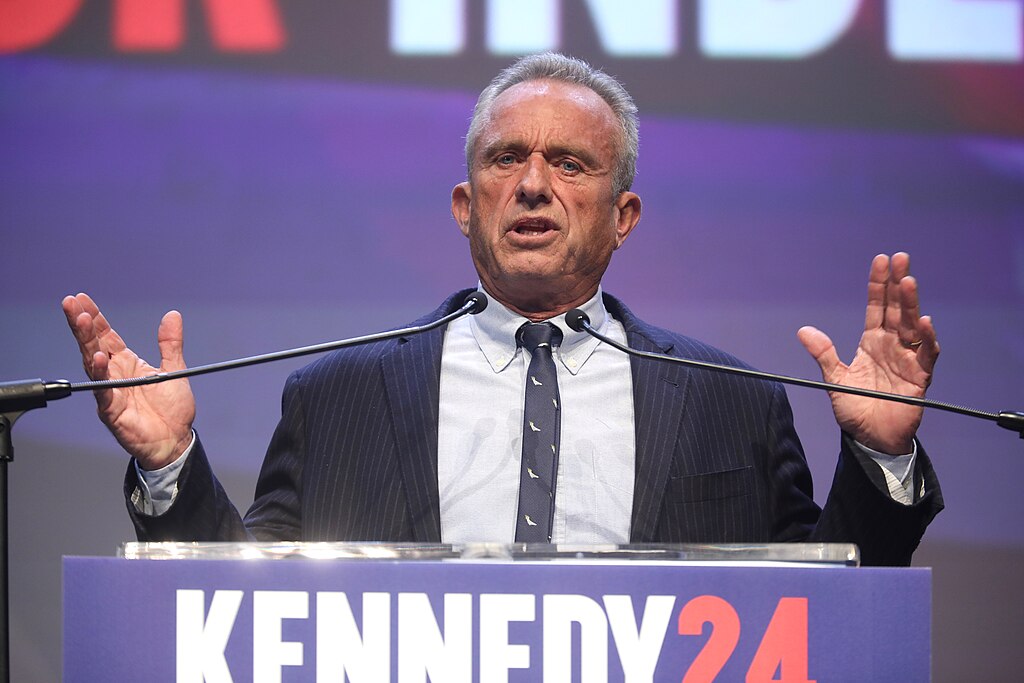Robert F. Kennedy Jr., recently nominated by President-elect Donald Trump to lead the Department of Health and Human Services (HHS), has proposed a ban on direct-to-consumer pharmaceutical advertisements on television. This initiative has ignited a nationwide debate over the influence of drug companies in healthcare and the potential implications for public health.
A Bold Move Against Big Pharma
Kennedy, an environmental lawyer and prominent vaccine skeptic, argues that television drug advertisements contribute to the over-prescription of medications and inflate healthcare costs. He contends that the U.S. and New Zealand are the only countries permitting such direct-to-consumer pharmaceutical advertising, suggesting that a ban could lead to more informed and cautious prescribing practices.
"The constant barrage of drug commercials is not only annoying but also detrimental to public health," Kennedy stated during a recent interview. "It's time we put an end to this practice and prioritize patient well-being over corporate profits."
Public Reaction: A Nation Divided
The proposal has elicited a wide range of reactions from the public, particularly on social media platforms:
-
@HealthAdvocate: "Finally, someone is standing up to Big Pharma's manipulation. RFK Jr. is right on this!"
-
@FreeSpeechDefender: "Banning ads sets a dangerous precedent. What's next? Censorship of other industries?"
-
@MedicalProfessional01: "As a doctor, I see patients misled by these ads daily. This ban is overdue."
-
@ConsumerChoice: "I appreciate knowing my options. Why take away information that could help me?"
-
@PharmaRep2024: "This move could cost thousands of jobs in the advertising sector. Has RFK Jr. considered that?"
-
@SkepticalCitizen: "Is this really about public health, or just another way for the government to control us?"
Legal and Industry Implications
Implementing such a ban would face significant legal challenges, particularly concerning First Amendment rights related to commercial speech. The pharmaceutical industry, which spends over $4 billion annually on television advertising, is expected to oppose the proposal vigorously.
Critics argue that these advertisements play a role in educating consumers about available treatments, potentially prompting individuals to seek medical advice they might otherwise avoid. However, opponents like Kennedy believe that the persuasive nature of these ads leads to unnecessary medication use and contributes to escalating healthcare costs.
FDA's New Guidelines: A Step Toward Transparency
The Food and Drug Administration (FDA) has recently implemented new guidelines requiring drug companies to present risk information in a clear and neutral manner during advertisements. These rules, effective November 20, aim to eliminate distracting visuals and complex medical jargon that may downplay potential side effects.
While these measures seek to enhance transparency, Kennedy and his supporters argue that they do not go far enough in mitigating the undue influence of pharmaceutical companies on consumer choices.
Looking Ahead: The Future of Drug Advertising
As Kennedy prepares to assume his role at HHS, the proposal to ban television drug advertisements is expected to be a focal point of his tenure. The initiative aligns with his broader agenda to reduce the pharmaceutical industry's influence on public health policies and promote alternative approaches to healthcare.
Whether this proposal will withstand legal scrutiny and industry pushback remains to be seen. However, it has undeniably sparked a critical conversation about the role of pharmaceutical advertising in American society and its impact on public health.



 Israel Declares State of Emergency as Iran Launches Missile Attacks
Israel Declares State of Emergency as Iran Launches Missile Attacks  Philippines, U.S., and Japan Conduct Joint Naval Drills in South China Sea to Boost Maritime Security
Philippines, U.S., and Japan Conduct Joint Naval Drills in South China Sea to Boost Maritime Security  Pentagon Leaders Monitor U.S. Iran Operation from Mar-a-Lago
Pentagon Leaders Monitor U.S. Iran Operation from Mar-a-Lago  Venezuela Oil Exports to Reach $2 Billion Under U.S.-Led Supply Agreement
Venezuela Oil Exports to Reach $2 Billion Under U.S.-Led Supply Agreement  Keir Starmer Faces Crucial By-Election Test in Manchester Amid Tight Three-Way Race
Keir Starmer Faces Crucial By-Election Test in Manchester Amid Tight Three-Way Race  Federal Judge Blocks Virginia Social Media Age Verification Law Over First Amendment Concerns
Federal Judge Blocks Virginia Social Media Age Verification Law Over First Amendment Concerns  ICE Hiring Surge Raises Vetting Concerns Amid Rapid Expansion
ICE Hiring Surge Raises Vetting Concerns Amid Rapid Expansion  Pentagon to Halt Ivy League Programs for U.S. Military Officers Starting 2026
Pentagon to Halt Ivy League Programs for U.S. Military Officers Starting 2026  U.S. Plans 4,500 Monthly Refugee Admissions for White South Africans Amid Policy Debate
U.S. Plans 4,500 Monthly Refugee Admissions for White South Africans Amid Policy Debate  Dominican Republic Unveils Massive Rare Earth Deposits to Boost High-Tech and Energy Sectors
Dominican Republic Unveils Massive Rare Earth Deposits to Boost High-Tech and Energy Sectors  Trump Media Weighs Truth Social Spin-Off Amid $6B Fusion Energy Pivot
Trump Media Weighs Truth Social Spin-Off Amid $6B Fusion Energy Pivot  Trump to Address Nation as U.S. Launches Strikes in Iran, Axios Reports
Trump to Address Nation as U.S. Launches Strikes in Iran, Axios Reports  HHS Adds New Members to Vaccine Advisory Panel Amid Legal and Market Uncertainty
HHS Adds New Members to Vaccine Advisory Panel Amid Legal and Market Uncertainty  Germany and China Reaffirm Open Trade and Strategic Partnership in Landmark Beijing Visit
Germany and China Reaffirm Open Trade and Strategic Partnership in Landmark Beijing Visit  Maduro Seeks Dismissal of U.S. Drug Trafficking Case, Citing Sanctions Interference
Maduro Seeks Dismissal of U.S. Drug Trafficking Case, Citing Sanctions Interference  Argentina Senate Approves Bill to Lower Age of Criminal Responsibility to 14
Argentina Senate Approves Bill to Lower Age of Criminal Responsibility to 14  Denver Mayor Orders Police to Protect Protesters, Restricts ICE Access to City Property
Denver Mayor Orders Police to Protect Protesters, Restricts ICE Access to City Property 































